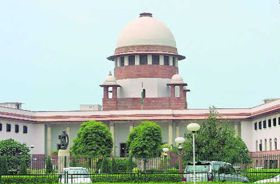Simran Sodhi
Dara Shikoh, after all these centuries, still managed to bring together scholars and envoys from different nations on one stage. A recent conference to discuss the contributions of Dara Shikoh, who first translated the Upanishads from Sanskrit to Persian, saw attendance of the ambassadors of Iran, Lithuania, the Czech Republic and Bhutan.
Scholars from countries such as Iran, the United States, Afghanistan, Tajikistan, Uzbekistan, Kazakhstan and India gathered under one roof to discuss the contributions made by Dara Shikoh and how the Indo-Persian identity still lives on today.
The aim behind the conference was to highlight the secular facet of the Mughal courts which is often ignored today. The attendance of Iranian Ambassador Gholamreza Ansari, Lithunia Ambassador Laimonas Talat-Kelpsa, Ambassador of the Czech Republic Milan Hovorka and Bhutanese Ambassador Vetsop Namgyel was an acknowledgment of the ties that still bind India and the world through Persian and the translations of Upanishads by Dara Shikoh which was the beginning of the western civilization’s study of Indian culture.
Atollah Hassani, a scholar from Iran, pointed to the age-old ties between India and Iran and how the two people actually are one. “In history, there is no difference between India and Iran. We are Indo-Persian people from the same Aryan ancestors,” he said.
The main force behind getting the conference together was the Indian Council for Cultural Relations (ICCR) and its president Lokesh Chandra. Chandra said: “It was Dara that brought different cultures into dialogue and found a close connection between Hinduism and Islam and was the founding Father of Secularism in India. The best commentary on Mahabharata was written in Shah Jahan’s Court.”
Dara Shikoh was the son of Shah Jahan who lost the battle for the throne of Delhi and Hindustan to his brother Aurangzeb. Dara is today studied not only in India but extensively in Iran also. His works in Persian and his translations of the Vedas and Upanishads can be found in the libraries of Iran and that connect, as many scholars point out, is far deeper than any shared between different cultures and nations.
Dara Shikoh’s ‘The Great Secret’ is believed to have restored the Indo-Iranian cultural ethos of harmony and consanguinity. His works which were ignored and gradually consigned to oblivion in South Asia have been partly published with explanations and notes in Iran.
A 90-minute play based on the life of Dara, who came to be known as the Philosopher Prince, was also staged at the National School of Drama.



























